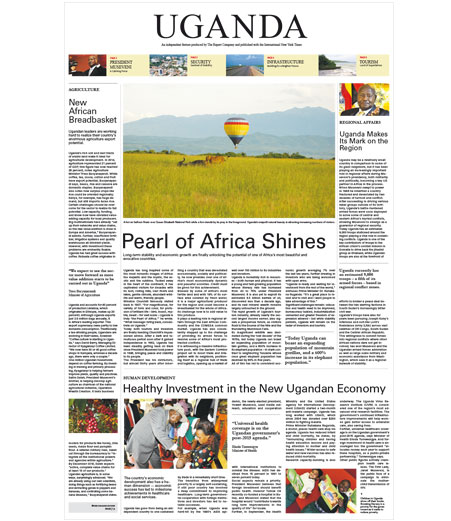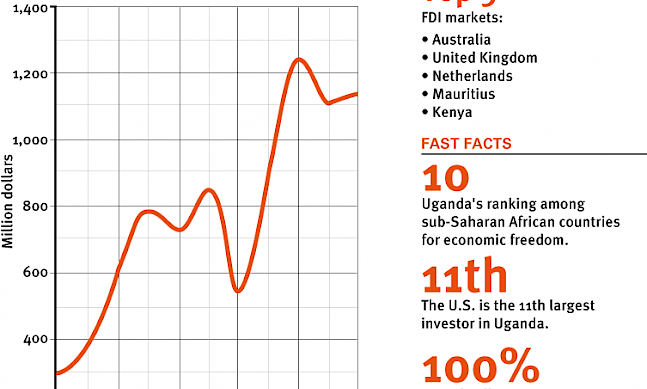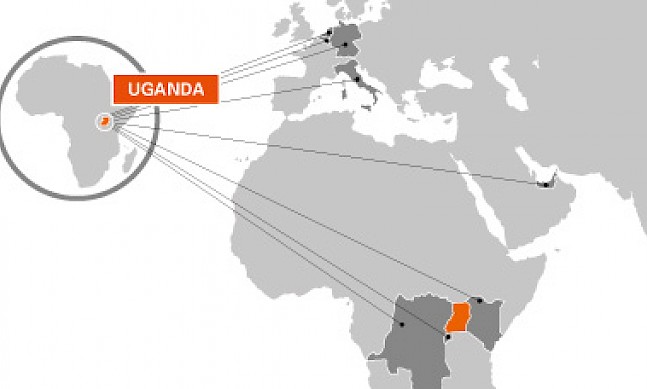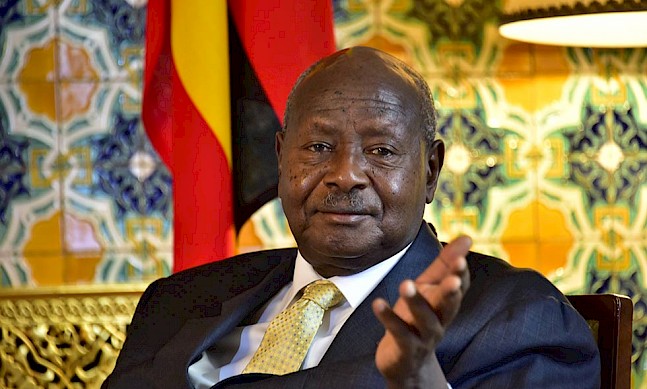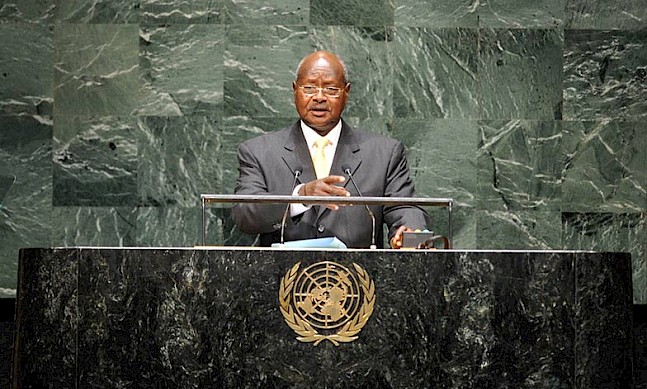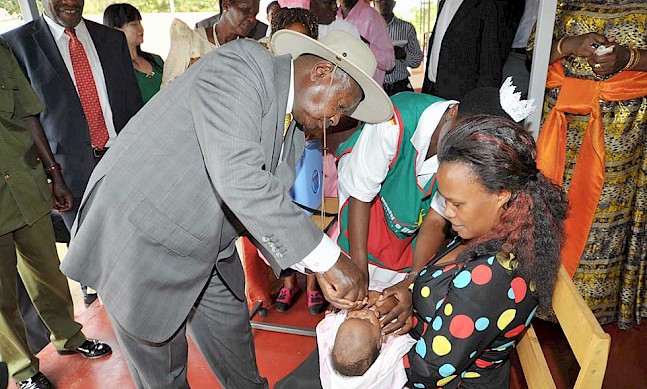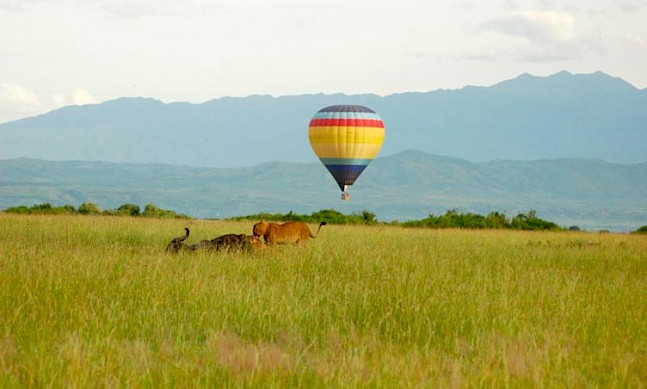Uganda boasts crude oil and natural gas deposits as well as substantial mineral deposits including copper and cobalt. With the country’s first oil refinery set to be completed in 2020, this resource-rich nation looks set to begin to capitalize on its natural wealth. Irene Muloni, Minister of Energy and Mineral Development, talks to The Report Company about the government’s open-door policy for investors who can take Uganda forward.
The Report Company: How would you appraise Uganda’s natural resources?
Irene Muloni: As a country we are blessed. We are rich in natural resources which include petroleum, minerals, energy resources, agricultural land, beautiful weather and rich soils. The political stability and the peace that is prevailing in the country right now create a conducive climate for us to exploit these natural resources.
We have iron ore, we have a huge deposit of vermiculite, we have copper and phosphates, iron, gold, dimension stone, wolfram, and silica sand. There is some exploration going on and the indication is that we may have platinum.
Our president’s vision is for this country to become a middle-income country in the short term, and so we recognize that we need energy to be able promote and support industrialization across the country. Through this industrialization, we will be able to add value and create more jobs for our population.
We also need energy to be able to exploit our mineral wealth. We have plenty of renewable energy sources, from hydro to solar, geothermal, wind and nuclear, that we have lined up to ensure that we support the transformation process in the country. That really lays the ground.
TRC: What is being done to ensure this vision can be realized?
IM: The legal framework is in place, the institutional framework is in place, the regulatory framework is in place and knowing that exploiting those resources requires huge financing, we’ve opened up to the private sector to come and invest in this country. We have cultivated a conducive investment climate by making sure that the necessary frameworks are in place so that we can allow these people to come in and invest.
The important issue so far has been to make sure that the country is stable. The president has also put in place some basic professional human resources to ensure the government can participate to its fullest potential. We now have about 100 petroleum professionals who have been trained and can engage the petroleum companies. If you are the owner of the resources and you are ignorant, then they can take you for a ride. It’s important to be knowledgeable. These professionals are helping us in ensuring that our positions and how we plan to move ahead is clear. Now, we are focusing on building infrastructure.
Now that our country is stable, we can go ahead and exploit these resources and that is what we are trying to do now.
TRC: Where do you see the opportunities and challenges in exploiting the country’s natural resources?
IM: We have confirmed resources of 6.5 billion barrels of crude oil in place. We have also confirmed about 500 billion cubic feet of gas. Only 40 percent has been explored and out of that we have three international companies who are operating here: Tullow Oil, Total, and CNOOC.
The petroleum resource is in an environmentally-sensitive area, so whatever has to be done has to be done with care and caution because we do not want to damage the environment. Tourism is one of our major sources of revenue and therefore we want to make sure that we preserve the environment and the flora and fauna so that we are able to attract tourists. We have two new laws that we put in place in 2013 to enable us to manage this sector.
Importantly, the resource belongs to Ugandans so every Ugandan must benefit from that resource. This means it has to be managed in the most transparent and accountable manner. We are going all the way to make sure that at every stage we are applying best practices. We don’t want this resource to be a curse; it’s a blessing to us and therefore we want to embrace that blessing and fully benefit from it. Obviously, the earlier we can benefit from it, the better, but the beauty with that resource is that the cost of finding crude oil in Uganda is among the cheapest, less than a dollar a barrel. Low oil prices are not a problem for us.
“We don’t want hydrocarbons to be a curse; we want to embrace that blessing and fully benefit from it.”Post This
TRC: How will Uganda market its hydrocarbons?
IM: We have agreed on three markets. The first is through added value through a refinery. We think it can be done with two trains, the first train of 30,000 barrels and the next of 35,000 barrels. We are currently in the final stages of negotiations. It is going to be a public-private partnership; 60 percent private, 40 percent public. The public component is going to be shared amongst the East African member states. It is a joint effort.
The other destination is crude oil for export. This goes hand in hand with the Northern Corridor Infrastructure Project that will connect all five countries of the East African Community. We are developing this as a regional project so that it can serve us as a country but also our neighbors. Kenya and Rwanda are also in the hydrocarbons process. This project is going to be structured 70 percent debt, 30 percent equity so that each partner of the equity is able to prepare their share for their project to take off.
The third destination is crude for power generation but on a small scale. Crude to power comes online very quickly.
TRC: What opportunities are there for foreign investors to participate in the oil sector in Uganda?
IM: We’ve recently announced the first bidding round. It used to be first come, first served because back then we were looking for investment. It wasn’t so attractive as it is now. We halted licensing in 2008 until new laws were in place. The new laws now provide for bidding rounds. We have now been able to announce the first round and this is going to be six blocks covering about 3,000 square kilometers. We have those blocks ready and those who are now interested should be able to buy the data and prepare for bidding. We think that by September this year we should have new exploration licenses. That’s how we have structured the process.
There are over 400 companies that have expressed interest, both international and local. They are all most welcome.
TRC: What is the Ugandan government’s approach to local content in the oil sector?
IM: In the law provided for joint partnerships, there should be a minimum of 48 percent local content. We are trying to encourage Ugandans as much as possible to take advantage of these ventures. When you are a foreign company and you partner with a local one, they do the groundwork. They know the local environment, they know the language, they are able to pursue things on the ground much faster. I would really encourage it so that we carry everyone along.
TRC: What is your outlook for the industrialization of Uganda?
IM: We want to set up a petrochemical industry around the refinery, so that it will become a whole center with energy-based industries. We have huge reserves of iron ore and we want to develop the iron and steel industry. A lot of construction is going on and we’re importing all this steel and it’s very expensive so we end up with expensive projects because of the cost of materials. If we could produce our own materials, that would be excellent. It means the cost would be low and it would be more competitive. That is what we are looking at. To support all these industries, this means infrastructure: roads, the railway network and air transport.
TRC: What would you like people to know about Uganda?
IM: Uganda is ready for investment. It is endowed with rich natural resources in the areas of petroleum, minerals and agriculture. The weather is unrivalled and so anyone who comes here really enjoys their stay. The country is at peace and it is very stable. We have human resources who are able to support investments. The laws and the regulations are in place and they allow investors to get a return. What we’ve been striving to do is provide the necessary climate so that people can come and invest. We welcome everyone very warmly.



